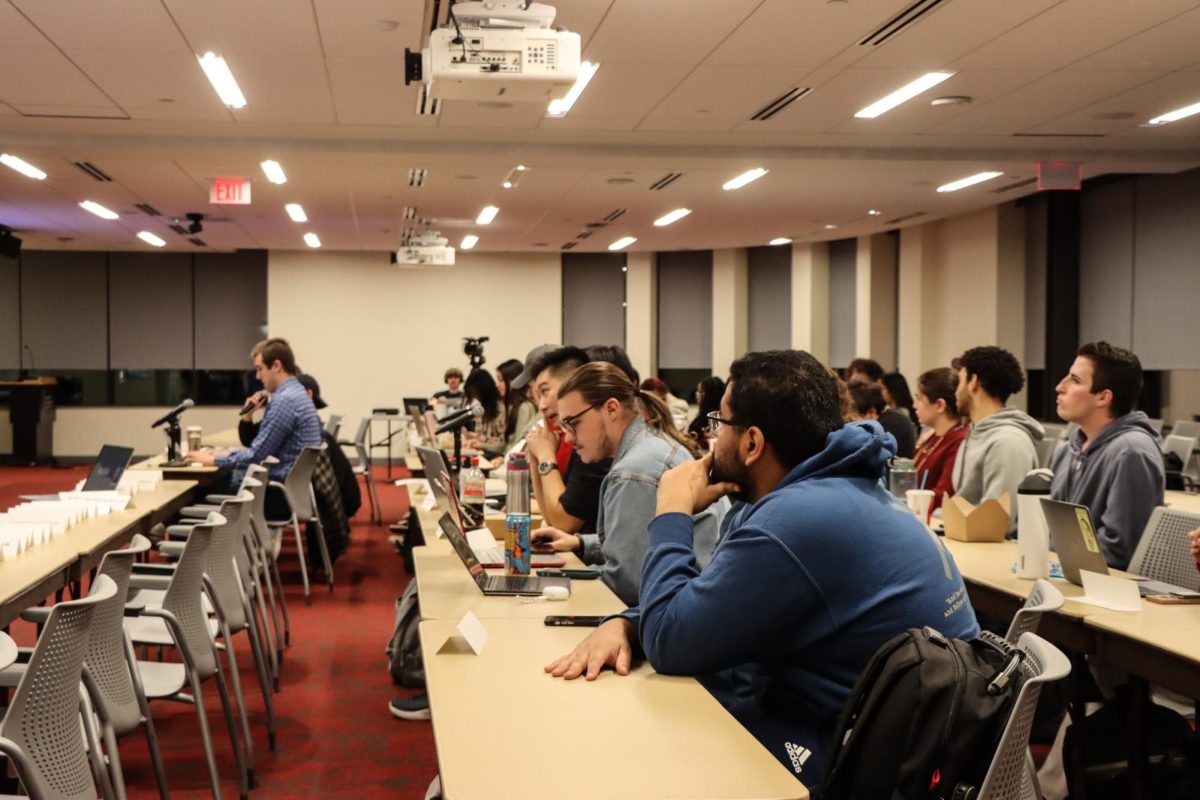Actress Laverne Cox of the Netflix original series “Orange is the New Black” spoke to a full house at the University of Massachusetts on Monday about her experiences as a transgender woman and how everyone can promote inclusiveness and acceptance for members of the transgender community.

Cox is the first transgender woman of color to have a leading role in a mainstream scripted television show. She plays the role of Sophia Burset, a transgender woman who is incarcerated for credit card fraud.
Students and faculty from the five colleges waited in line for hours outside the Student Union Ballroom to hear Cox speak. Roughly 700 people were admitted—hundreds more had to be turned away because the ballroom had reached capacity.
Cox stated that being African-American, transgender, a woman and having been raised by a single, working-class mother are all important parts of her identity. She grew up in Alabama, and said that her mother emphasized the importance of education for Cox and her twin brother.
Cox believes that everyone can help make the world safer and more accepting for gender nonconformists and help to implement inclusive in workplaces, schools and communities. Cox encouraged attendees to “speak to our friends, speak to our family” and “love trans people a little more.”
The majority of Cox’s speech covered her life, from the personal repression of her feelings that she was a woman, to society’s view and acceptance of her gender identity.
Cox and her brother were raised in an area with a history of racial oppression, but also with a history of fighting that oppression. Cox said that this taught her that “each one of us has the power to resist.”
As a child, Cox was constantly told that she was boy, but inside she knew that she was a girl. She described herself as a feminine child, which, according to her, “became a problem.”
Growing up, she was bullied by her classmates, who would chase her home from school and would call her names. Her mother frequently told her to act more like a boy. One day her mother received a phone call from a teacher who said that if Cox was not given therapy, she would end up in New Orleans wearing a dress.
Cox said that the people around her were always trying to police her gender and make sure that she acted only in ways appropriate with her biological sex. Because of the way that she was treated, Cox said that she didn’t feel safe and never felt like she fit in.
One night in sixth grade, Cox was so fearful that she had disappointed her family that she swallowed a handful of pills, hoping to commit suicide. When she survived, Cox decided to simply suppress the “girl thing.”
Once in college in New York City, Cox said that she felt more comfortable exploring her identity.
To Cox, the city was like a “dream.” She began to explore the club scene, where she discovered that gender nonconformists such as herself were welcomed. This, Cox said, allowed her to be more comfortable with who she was.
Throughout college, Cox drew inspiration from the works of Judith Butler and from the Stonewall riots, the Compton Cafeteria Riots and other examples of gender nonconformists fighting for change.
Finally, 15 years ago, Cox felt comfortable enough with herself to begin her transition from a male to a female body. She hoped that within a few years, people would not be able to tell that she was transgender. Three or four years into her transition, however, she was still recognized as transgender, and many people would scream and rudely point her out when she was in public. She still felt unsafe, and many people around her were not accepting of her identity.
In addition, many LGBT organizations of the time overlooked transgender rights. This left Cox feeling as though she and other transgender people did not have a safe space to express themselves. Even today, Cox said that transgender people are still waiting for this safe space.
Despite the fact that many people were not tolerant of Cox throughout her life, she has found a lot of support from friends, family and fans. Her mother is now very accepting and proud of her, as is her twin brother.
Cox said that she loved how the transition of her character, Sophia Burset, was portrayed on “Orange is the New Black.” She said that many transgender people have seen something of themselves and their stories in Sophia, and she also said that it has been a “gift” for her to be able to portray this character. Cox loves how Sophia’s relationships and struggles are so human.
“If we get to know people as human beings, many misconceptions we have about them will fade,” she said.
Rose Gottlieb can be reached at [email protected].












